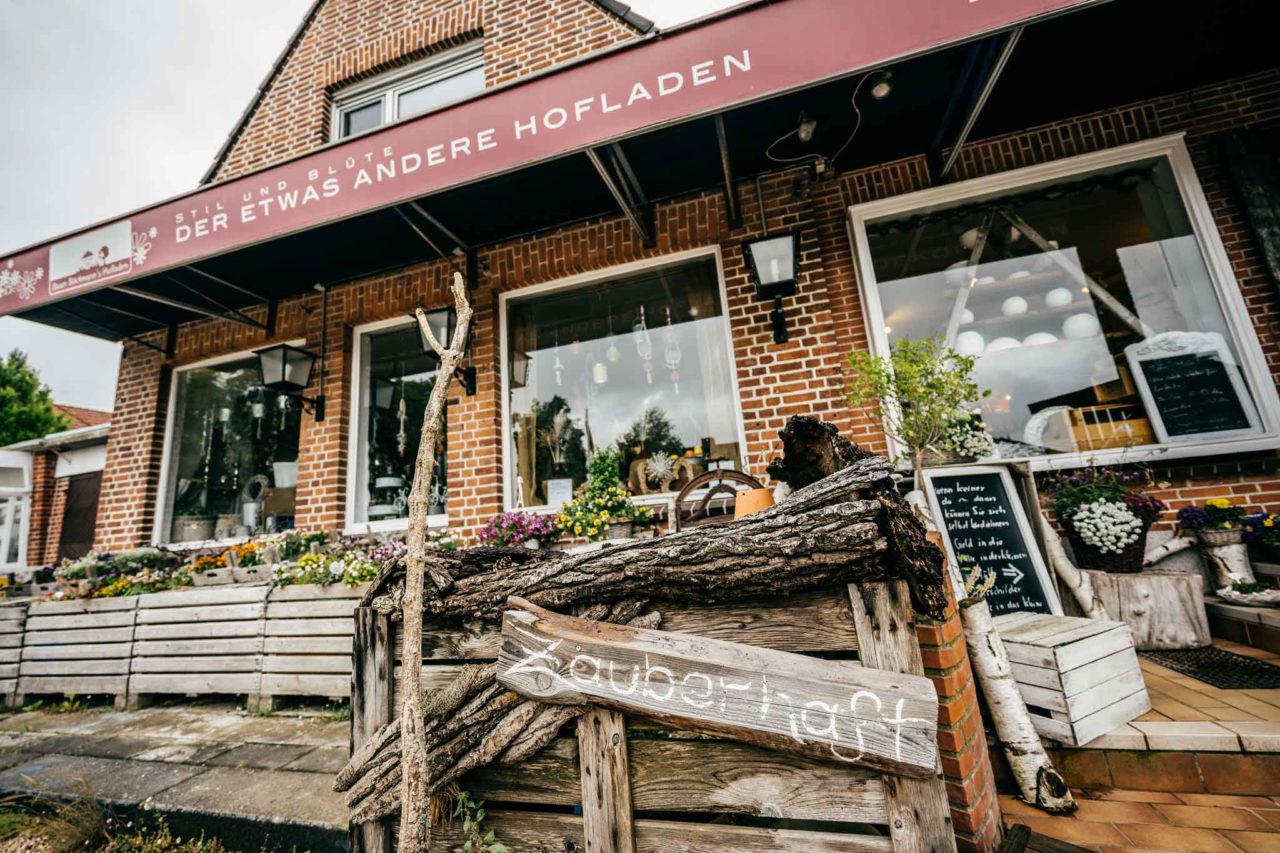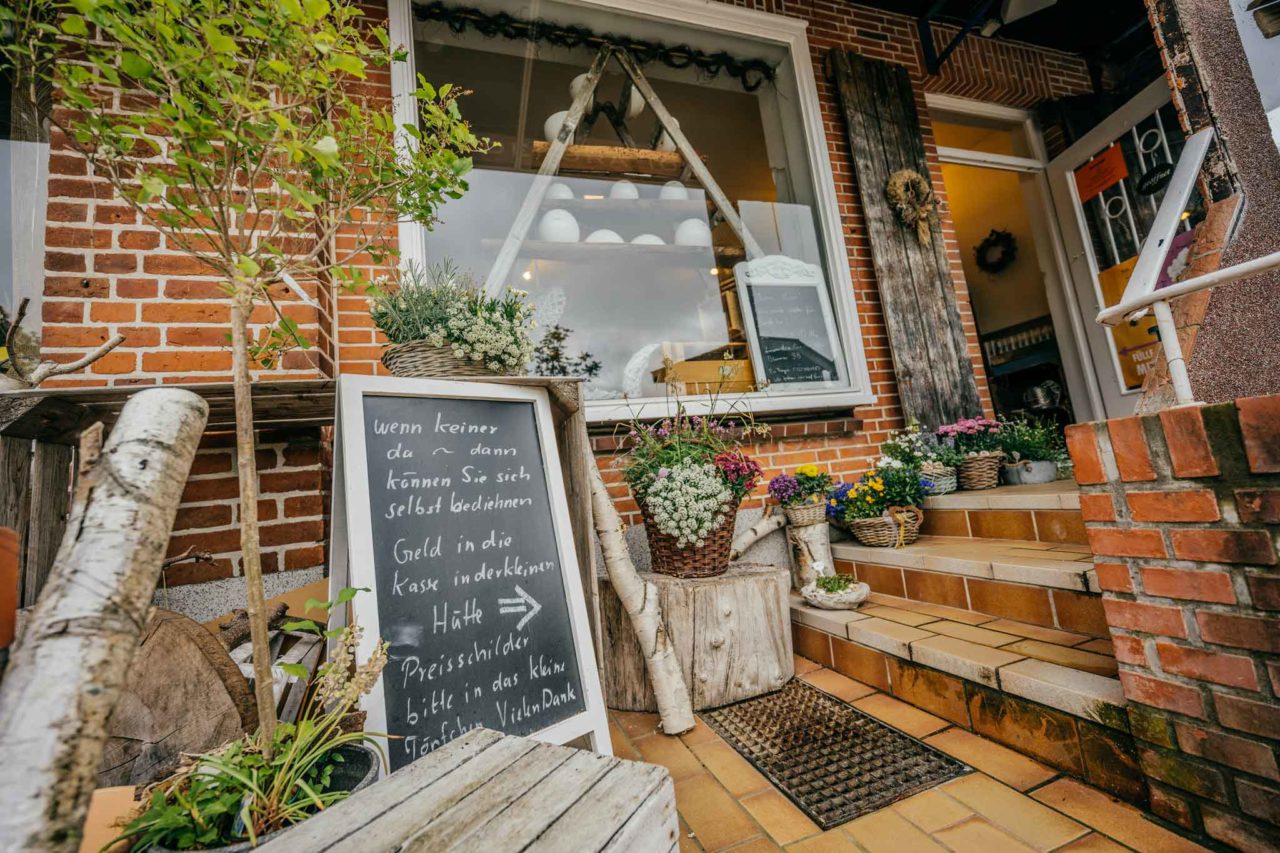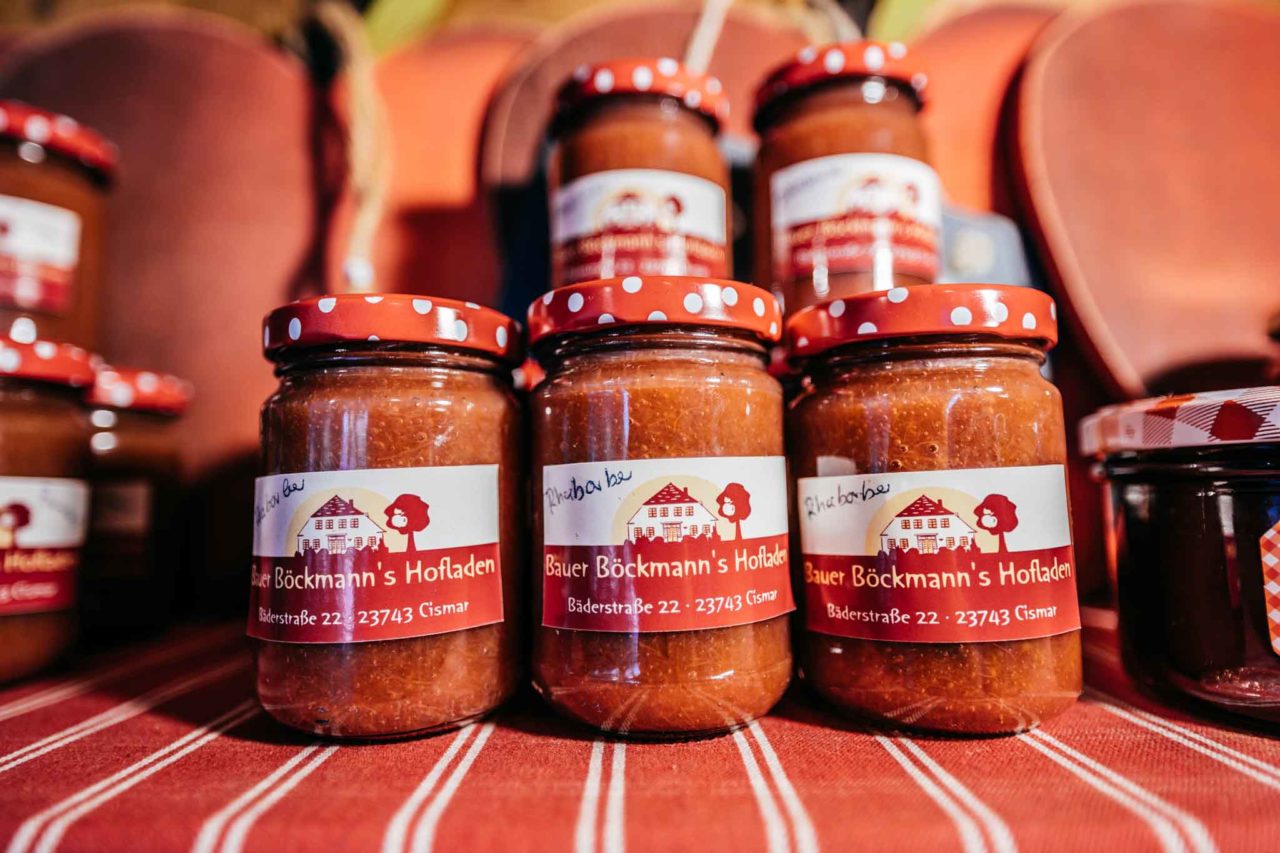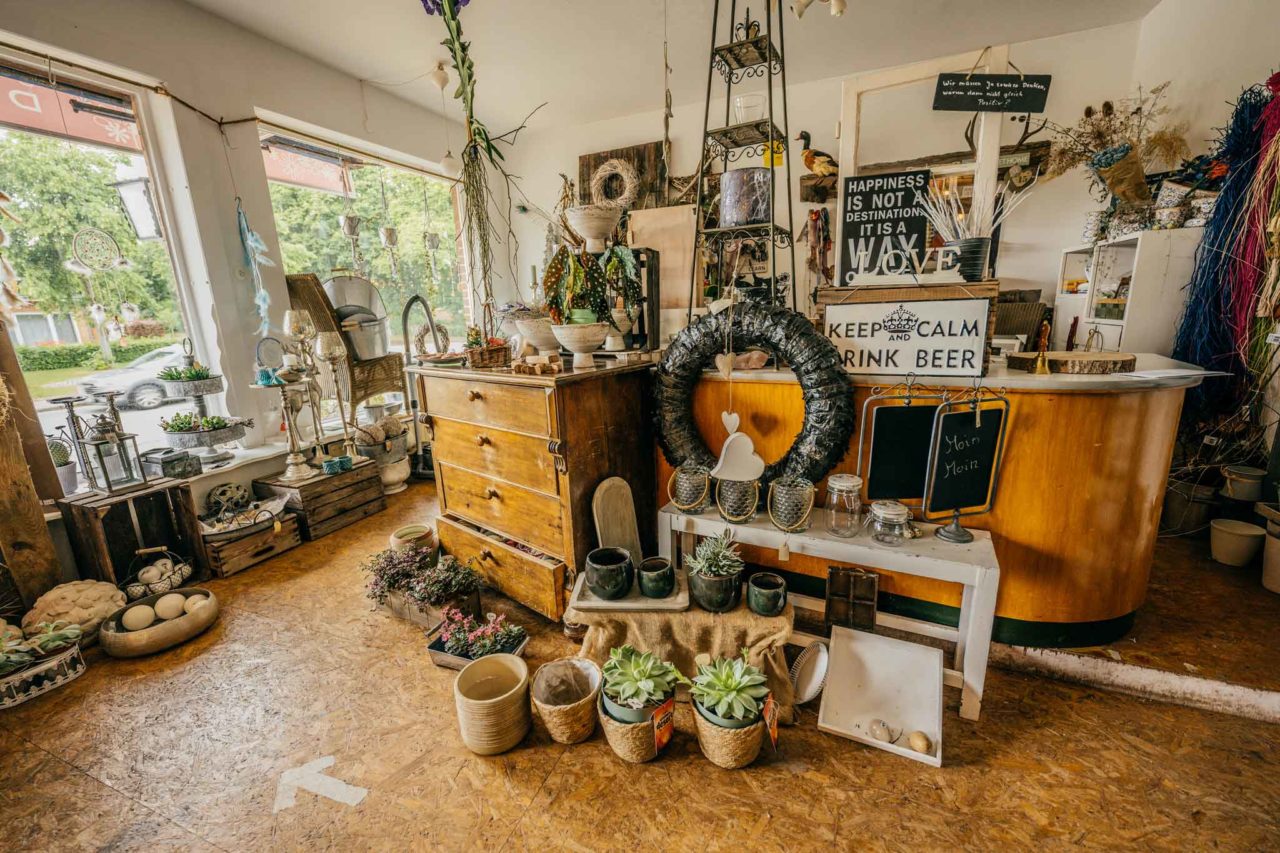
New Residents at Farmers Böckmann's Farm
Last June, Anja and Rolf Böckmann from Schleswig-Holstein set out for Rügen with an empty van, their goal was to return in the evening with a full vehicle. For they had fallen hard in love months before with the gray-wool Pomeranian country sheep.
Nordwolle: We are here today because you both decided to pick up some sheep from the Westphal sheep farm here on the Island of Rügen. How did you come about it?
Anja Böckmann: We saw the TV report about Nordwolle on NDR and found it very interesting what Marco said and above all, we thought the concept was very nice. Among other things, Frank Westphal was also featured in the report, and we had him in mind. Since my husband had kept sheep as a child, this was theoretically always an option for us, but it had not fit into the concept of our farm to that point. Gradually, however as we are now converting the farm into organic farming and in the future, we want to maintain marginal strips of land for example, along bodies of water the sheep can do this best. So, we have now decided to finally take this step and acquire our own animals.
Then, of course, came the question of which breed of sheep would be best suited for this. We didn't want typical meat sheep, but rather ones that are a bit lighter, but also more robust and that work well against bush encroachment. Since the Pomeranian sheep had already hooked us while watching the documentary and we are totally enthusiastic about the fact that the wool is sensibly utilized, the decision was quickly made. In the end, this television report is to blame for the fact that we are here today.
Nordwolle: What does the transition from conventional farming to organic farming look like?
Rolf Böckmann: We are right in the middle of the transformation. In strawberry production, we have already started to farm differently from other other strawberry farmers. We no longer use any crop protection at all and have noticed that this has been successful, we have also asserted ourselves with our quality. The next step is to convert the whole farm to be organic, because it is simply consistent. The decision for the organic label was made primarily for the consumers. It is easier to communicate to them than if we always just tell them that we no longer use pesticides.
However, this decision was not an easy one with all the previous generations work under your belt one has to go their own way. Nevertheless, I feel incredibly good about putting this farm on a secure footing. In addition, we have now also started growing vegetables so that we can produce organic vegetables in the future. I'm a big fan of that and I think we're on the right track with it.
Anja Böckmann: When you think about switching to organic farming, you inevitably come to the question of which animals to keep. The manure from the animals is the best fertilizer we can get for the land. You must alternate crops and there should also be grassy areas in between, which you can then graze sensibly. For this purpose, you can keep cattle or sheep, for example, and we have now decided on sheep for the time being. As we convert slowly, we want to build up a herd gradually.
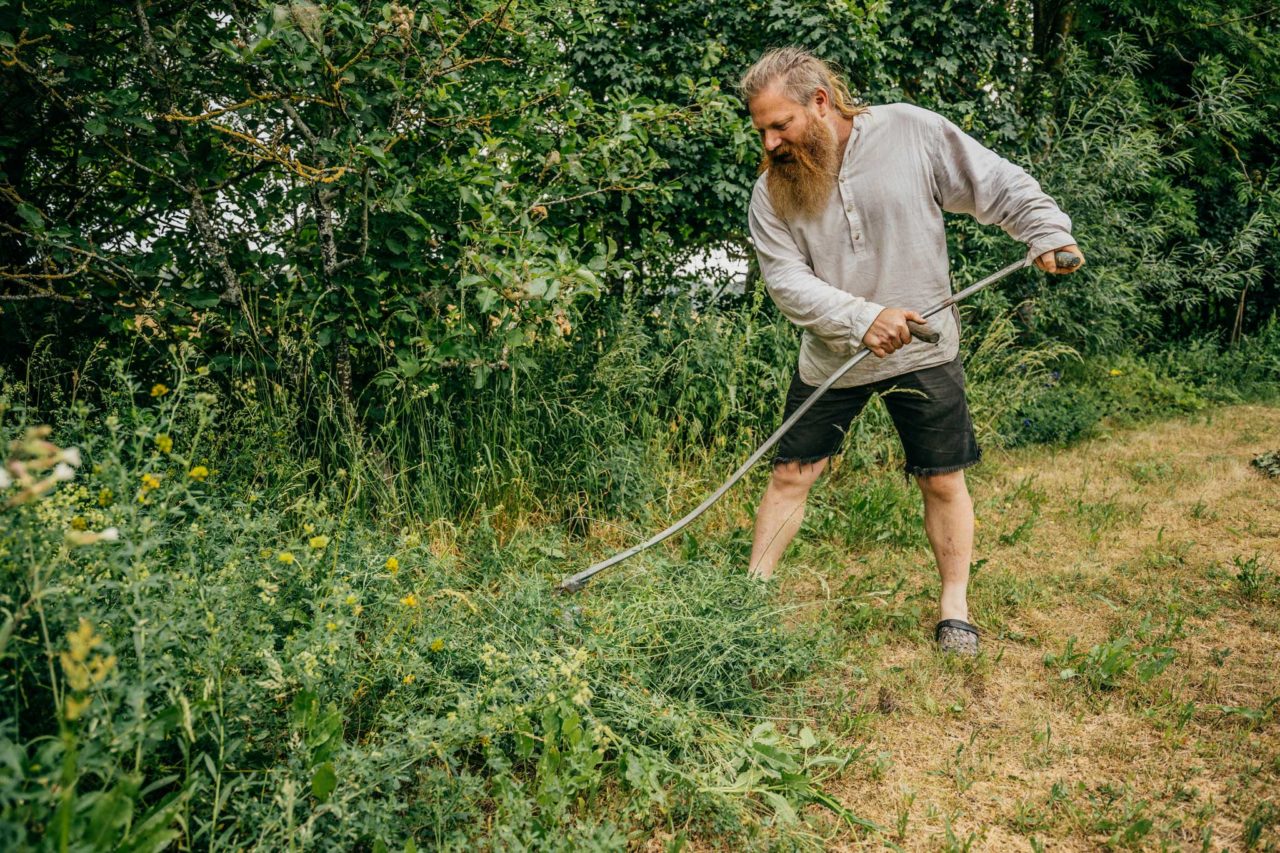
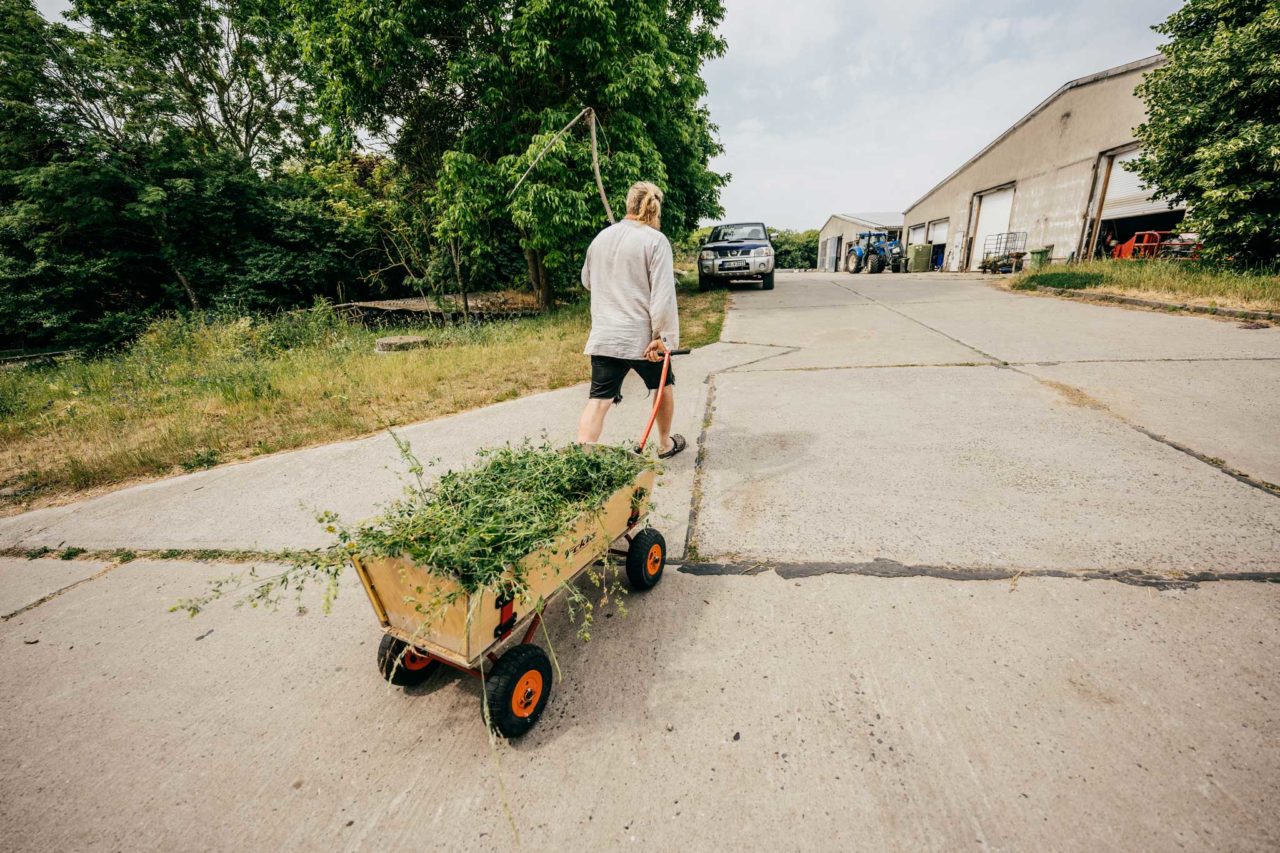
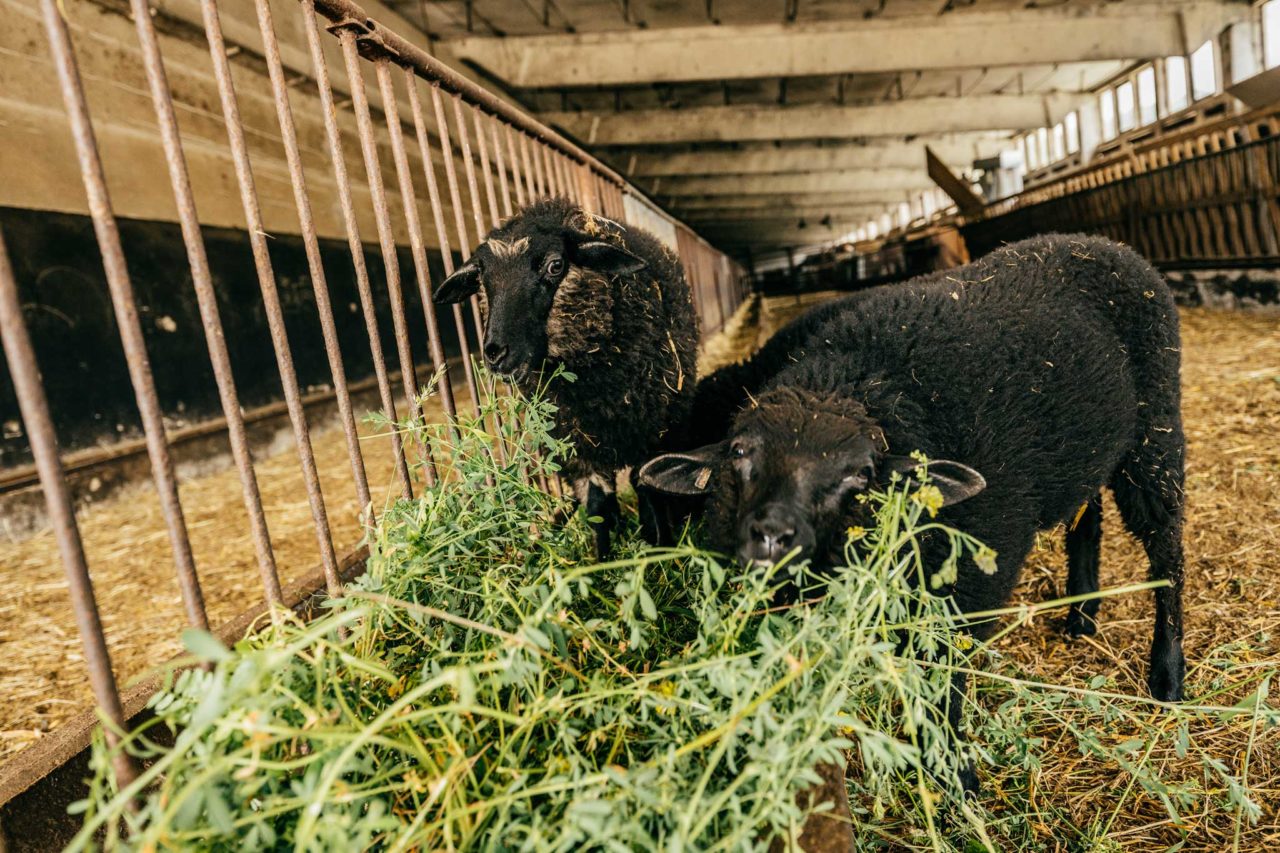
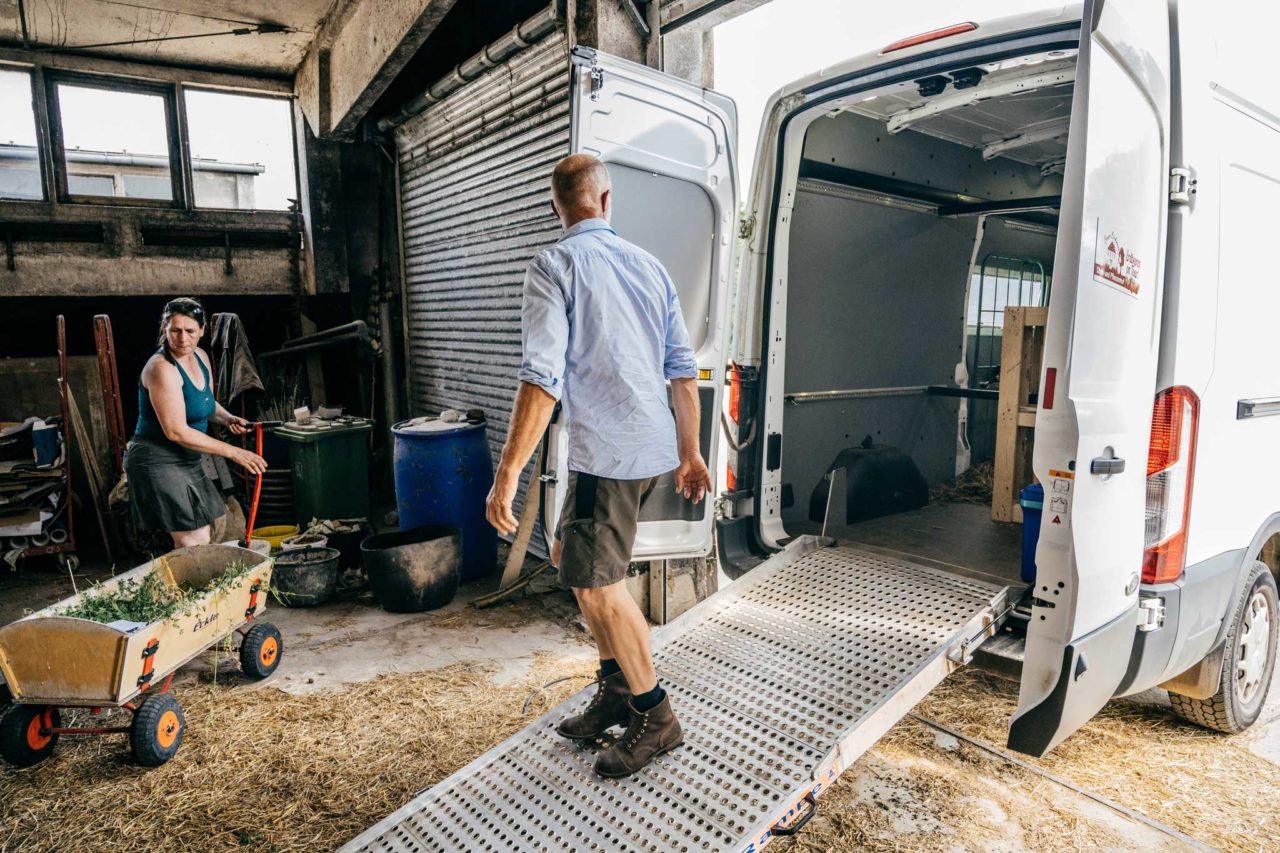
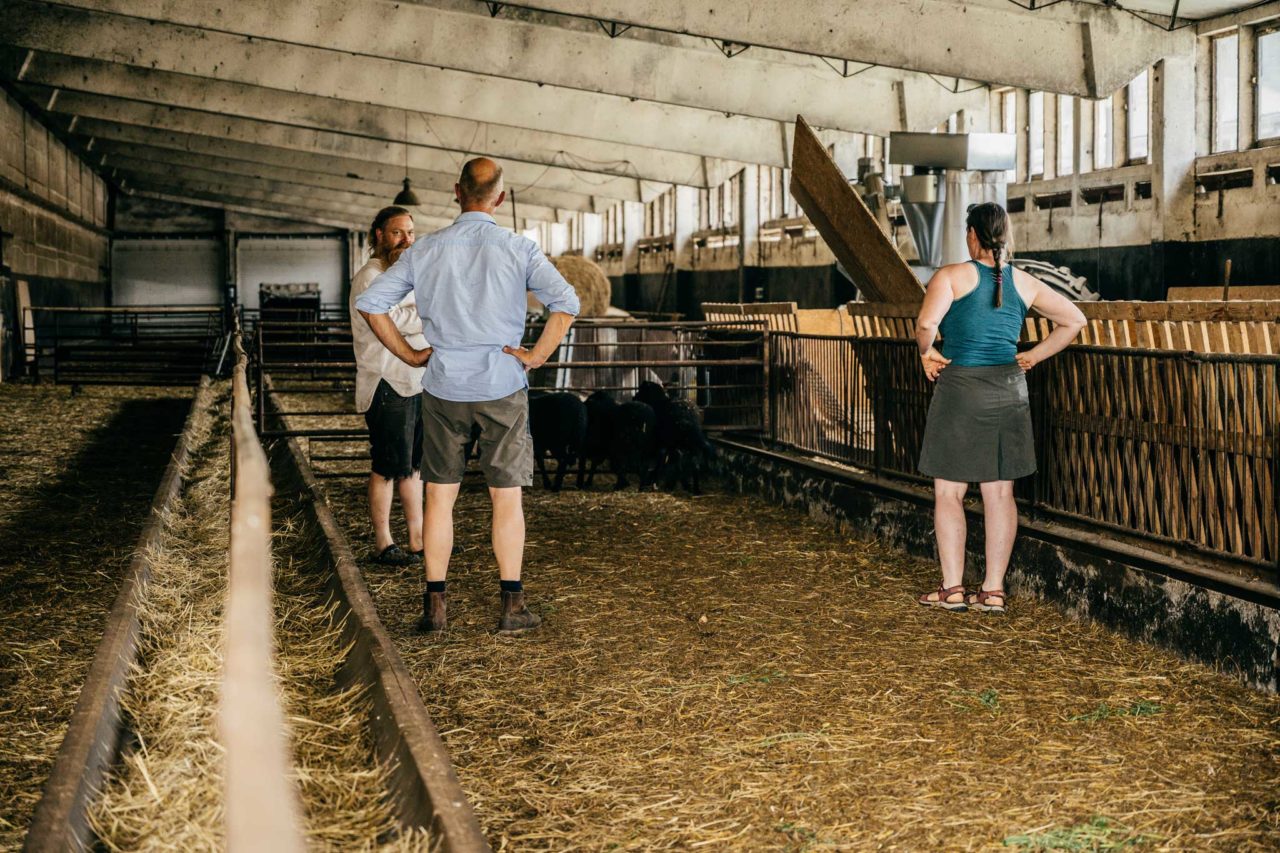
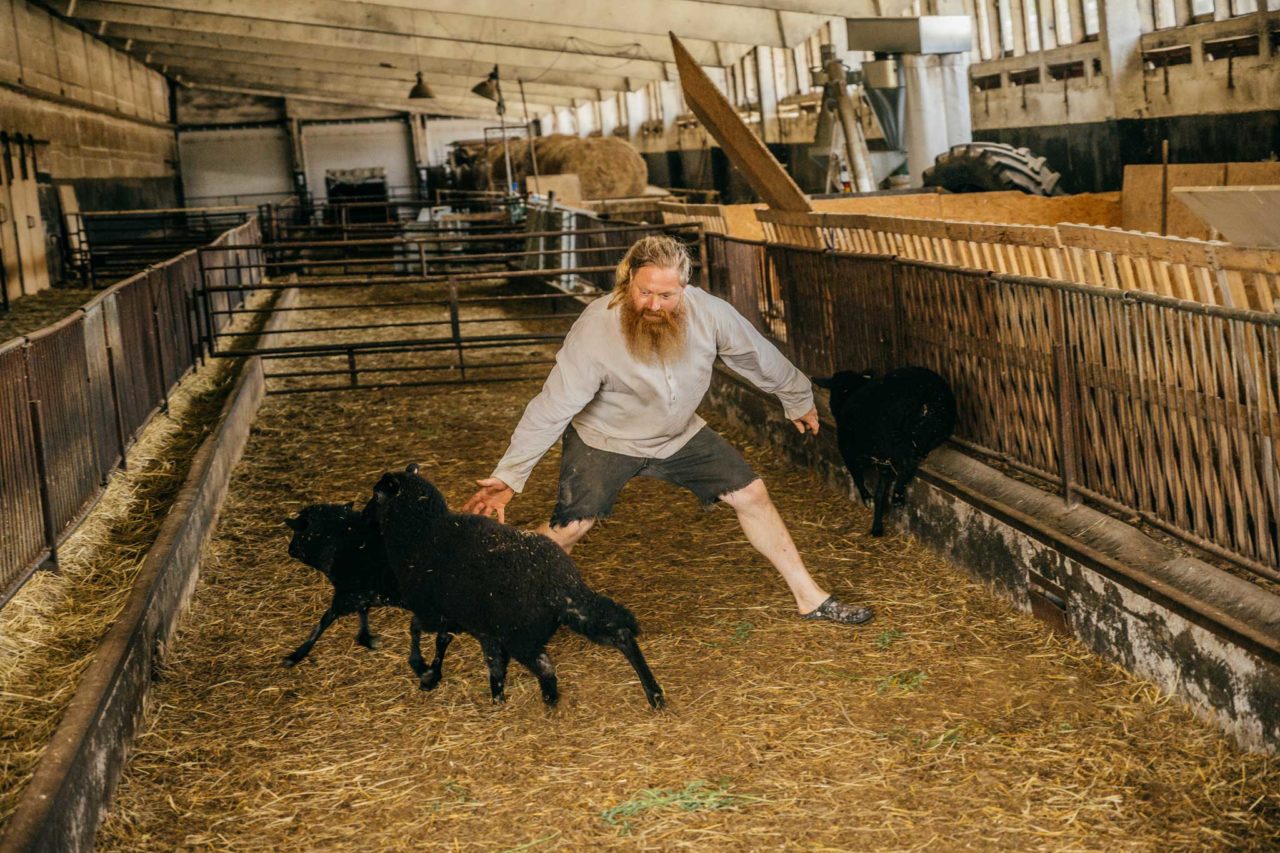
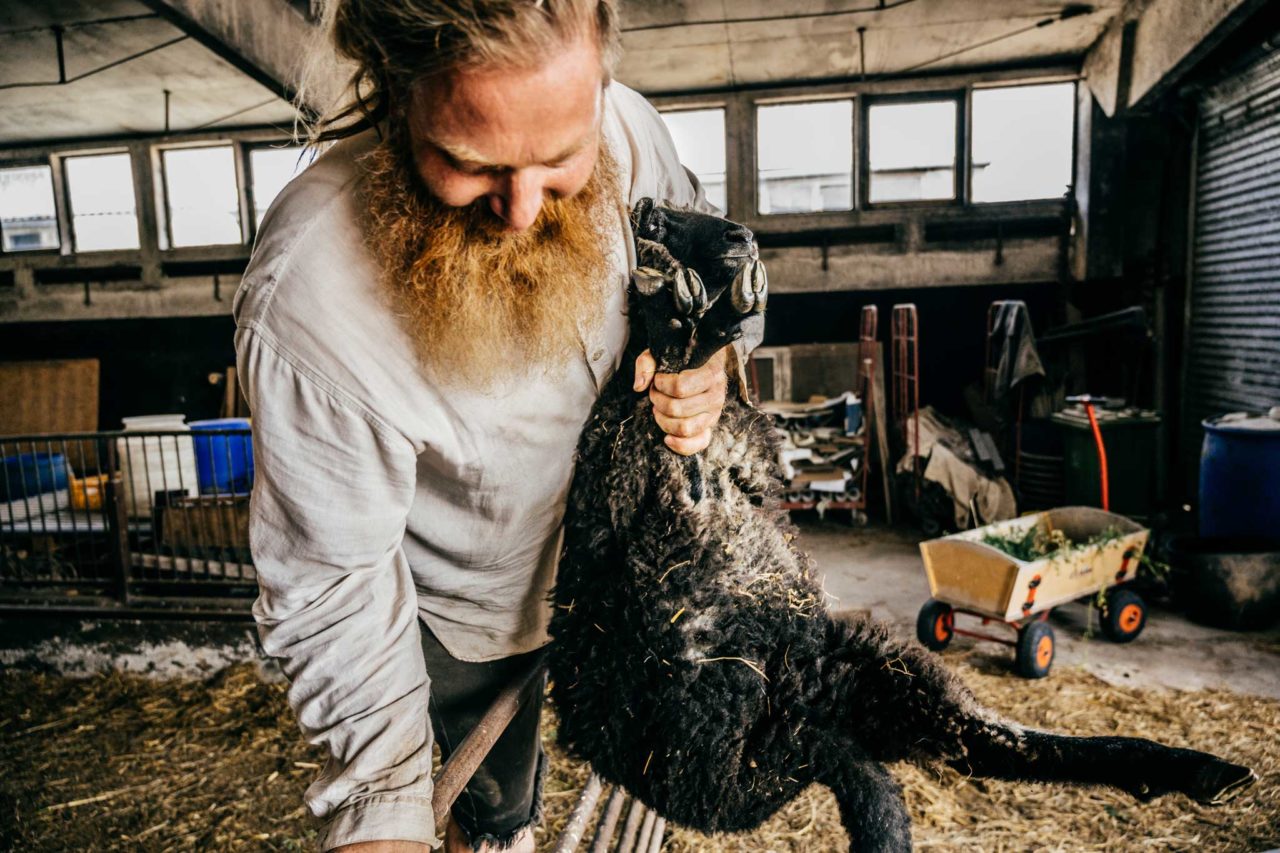
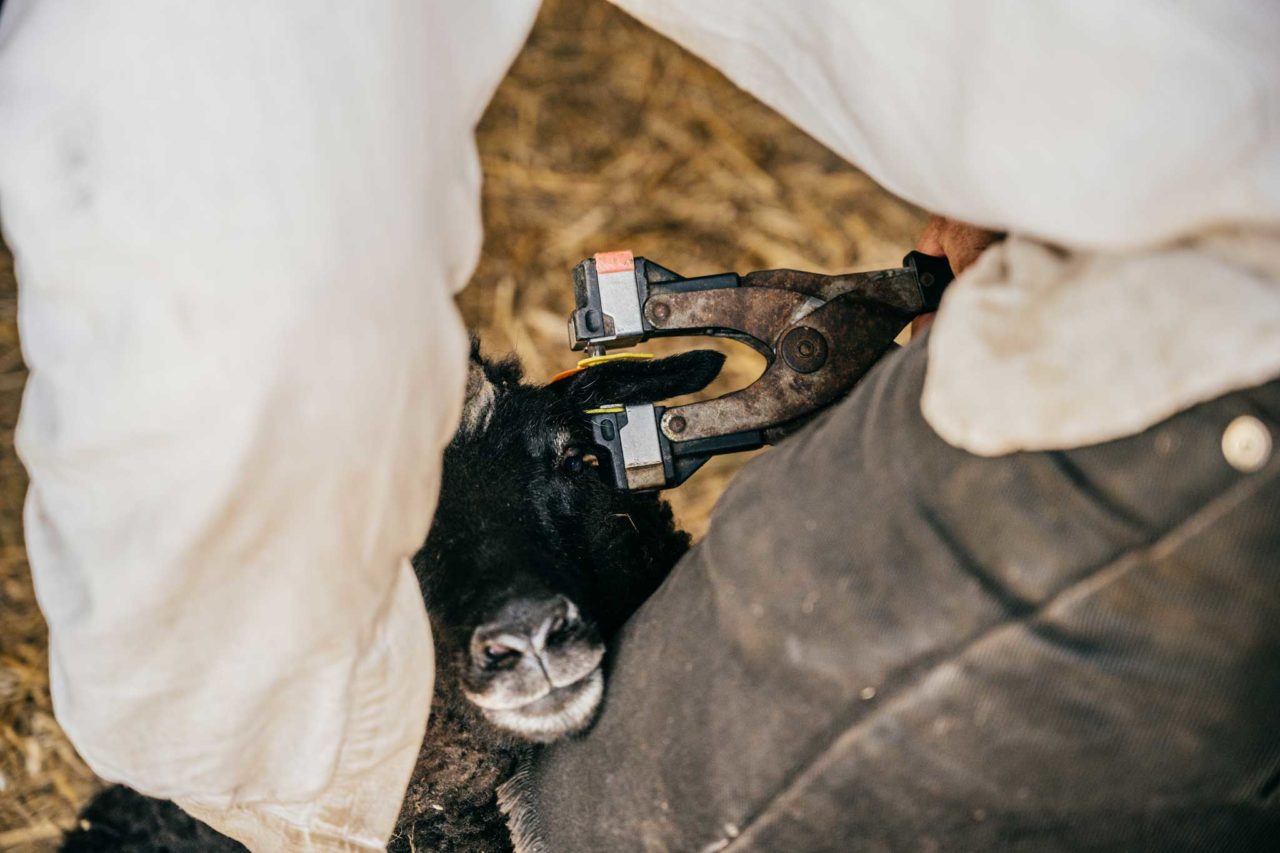
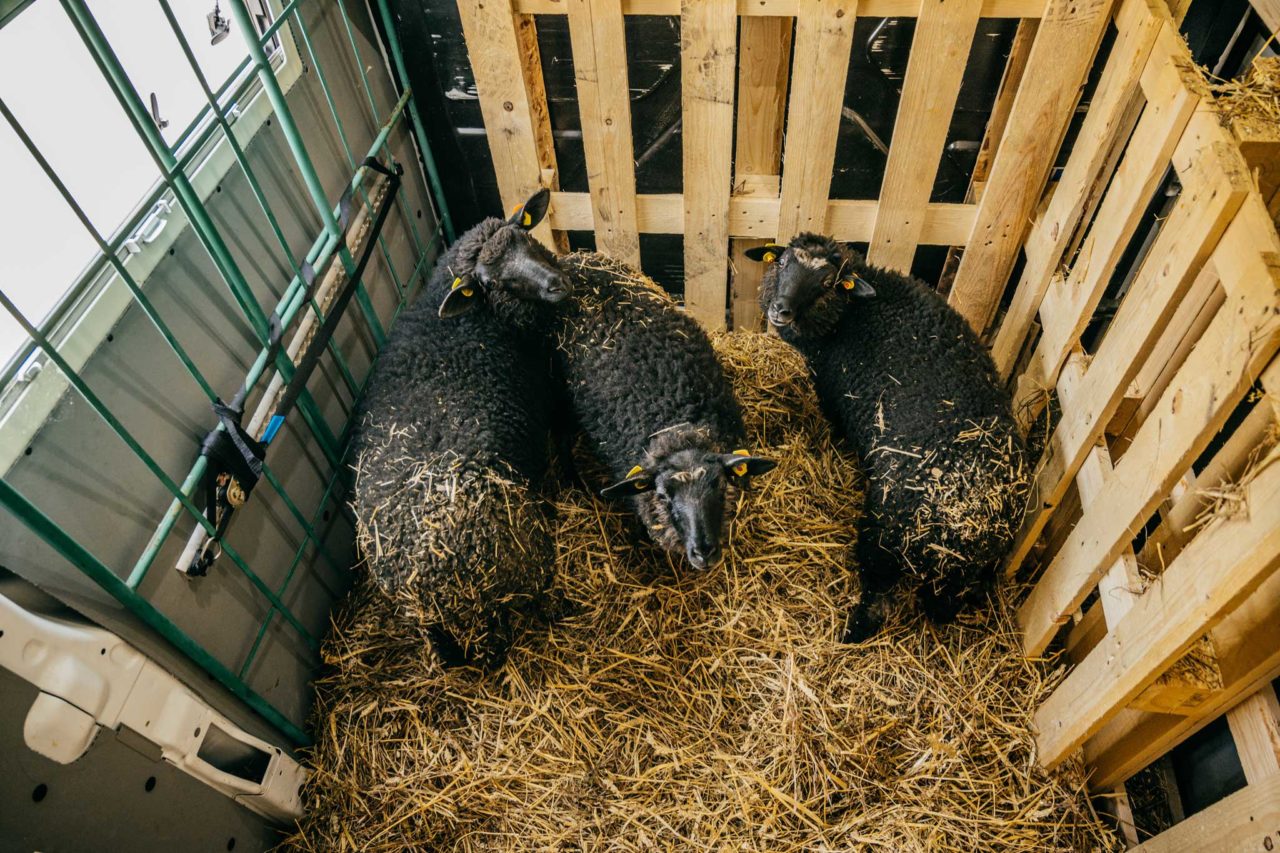
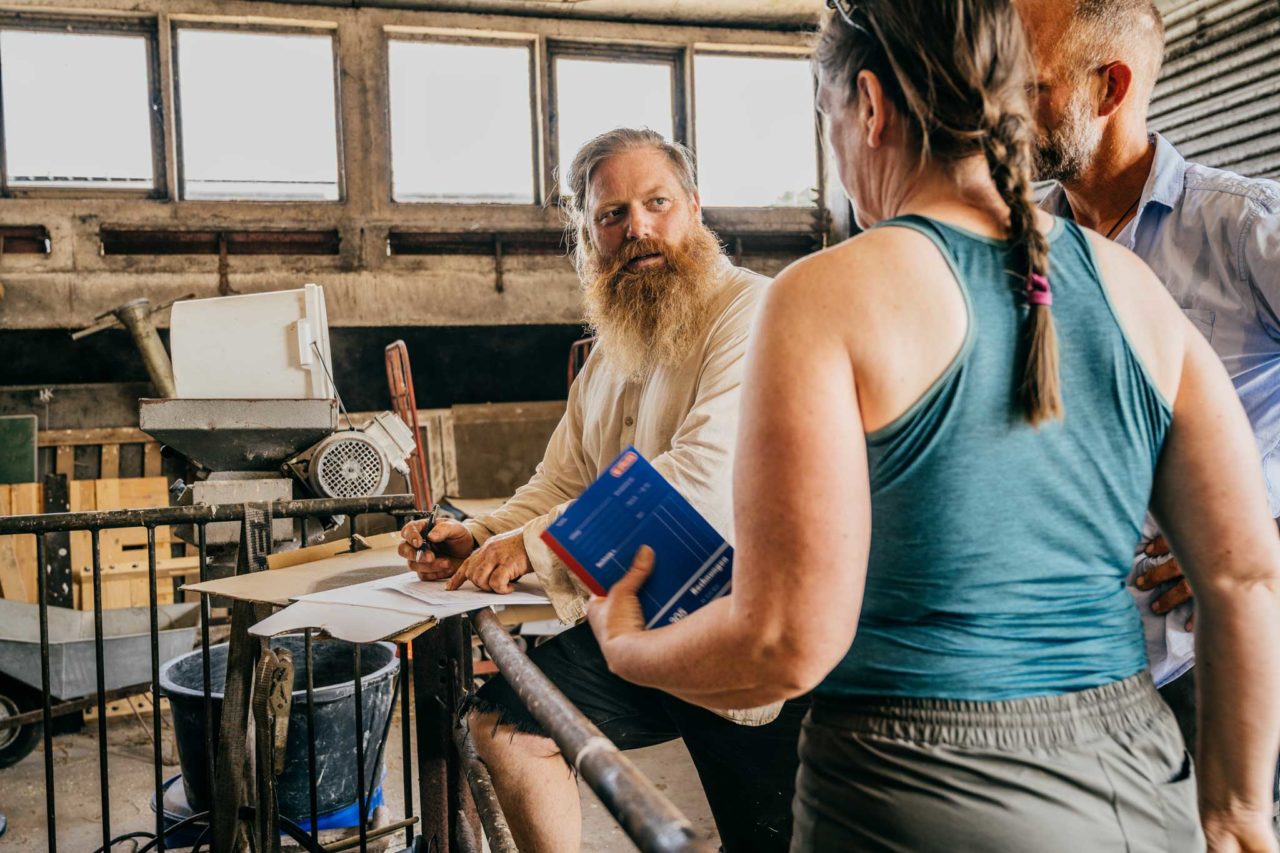
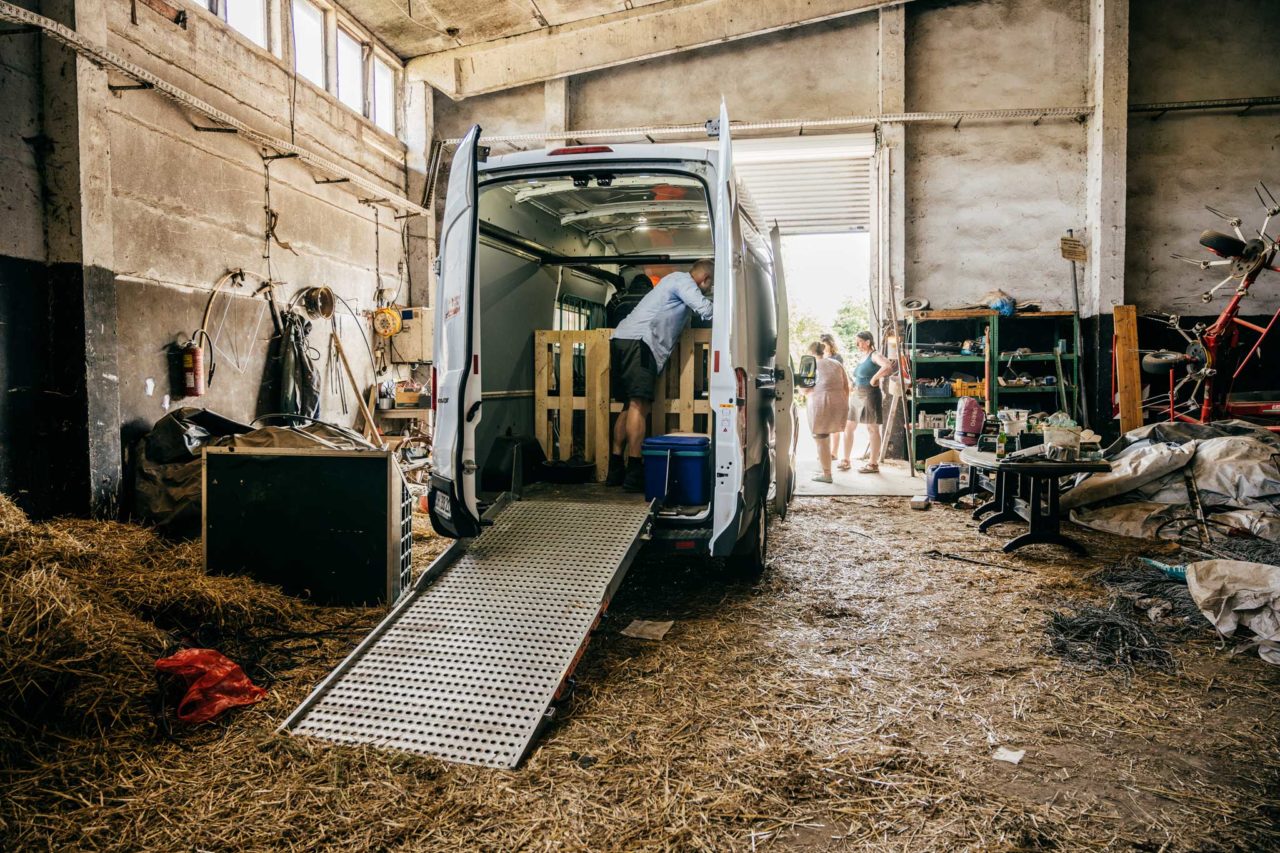
Nordwolle: You are going to pick up 3 lambs here. How did you plan the transport and the arrival of the animals?
Rolf Böckmann: Well, I must be honest, I'm a bit excited, these are new family members arriving. But I'm taking everything in stride. First, I'm trying to get them from here to Grömitz in a sensible way so that they don't have any stress. At home we have prepared everything, the area they are allowed to graze first is already fenced in and then we will observe everything for a bit and see how we get along with the new family members.
I learned well how to handle sheep when I was young. Now let's see if all that is still there otherwise, I may ask Frank. I'm sure I'll call him to ask how to handle somethings. I am also an animal person, and I am good with plants, I grew up here. A lot of things come naturally from the gut and I would say that I can also tell by looking at animals when they're in a bad way and when they're doing well.
Anja Böckmann: Many people around us are already very excited about the sheep and look forward to seeing them, from our children, the neighbours even the girls who have their horses with us. But I am very curious to see how our horses will react to the sheep and how the sheep will react to the horses. It would be optimal if they could run together at some point because they don’t share pasture.
Rolf Böckmann: But the best thing is that animals are coming back to the farm. Many consumers would also find it great if there were more farm animals living there again. We have horses and now also the sheep. We are also thinking about Highlanders, we could do well with that too. All these animals that would be a good fit on our farm they help us with the landscape maintenance, or they are just there for us to watch them. Many people underestimate the relaxing effect of animals. If you just stand at the fence and watch the animals, in particular the sheep have an incredibly calming effect.
Anja Böckmann: I haven't had that much contact with sheep. So far, I have only had to deal with large animals. I grew up on a cattle farm, I can handle a big bull, but not yet a sheep.
Nordwolle: Will all your sheep get a name?
Anja Böckmann: Yes, definitely! And they absolutely have to be Nordic. With us, all animals have names.
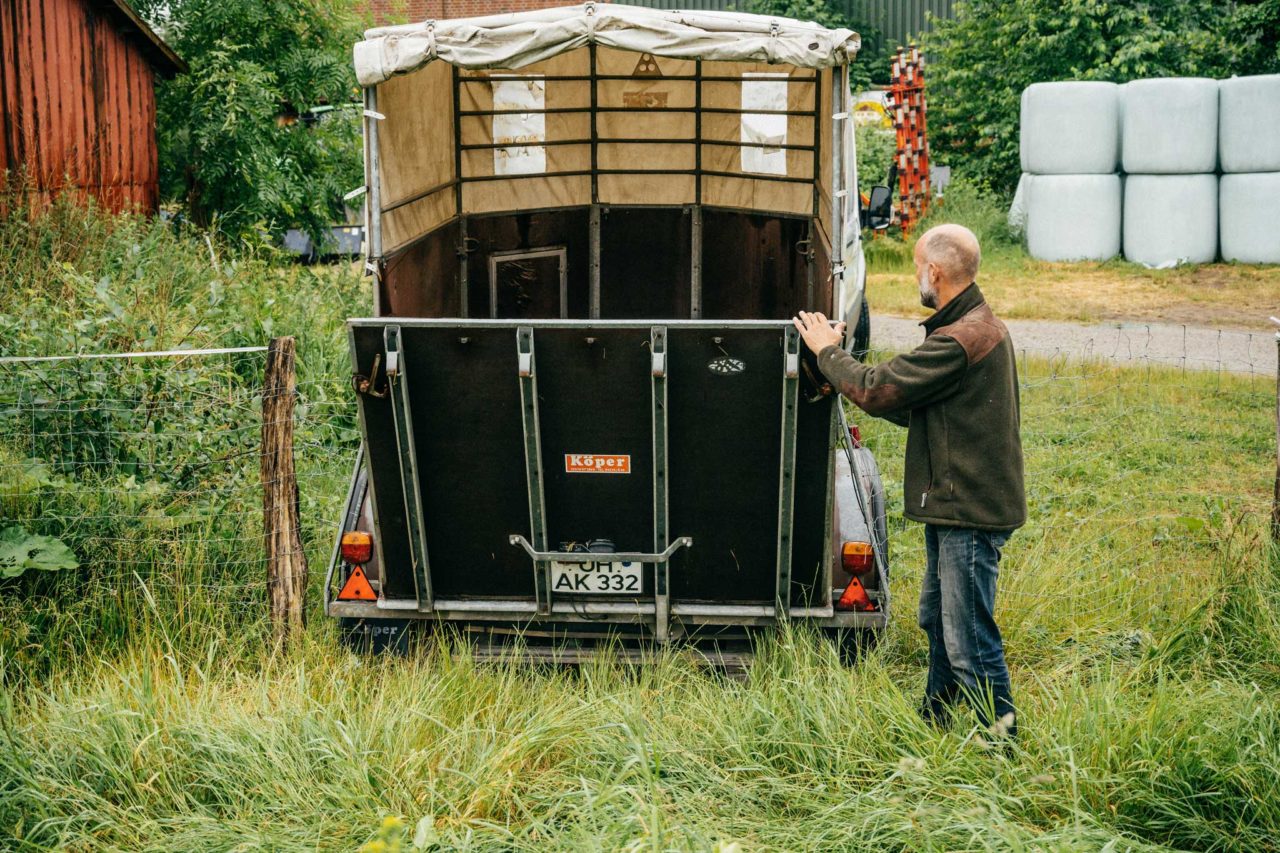
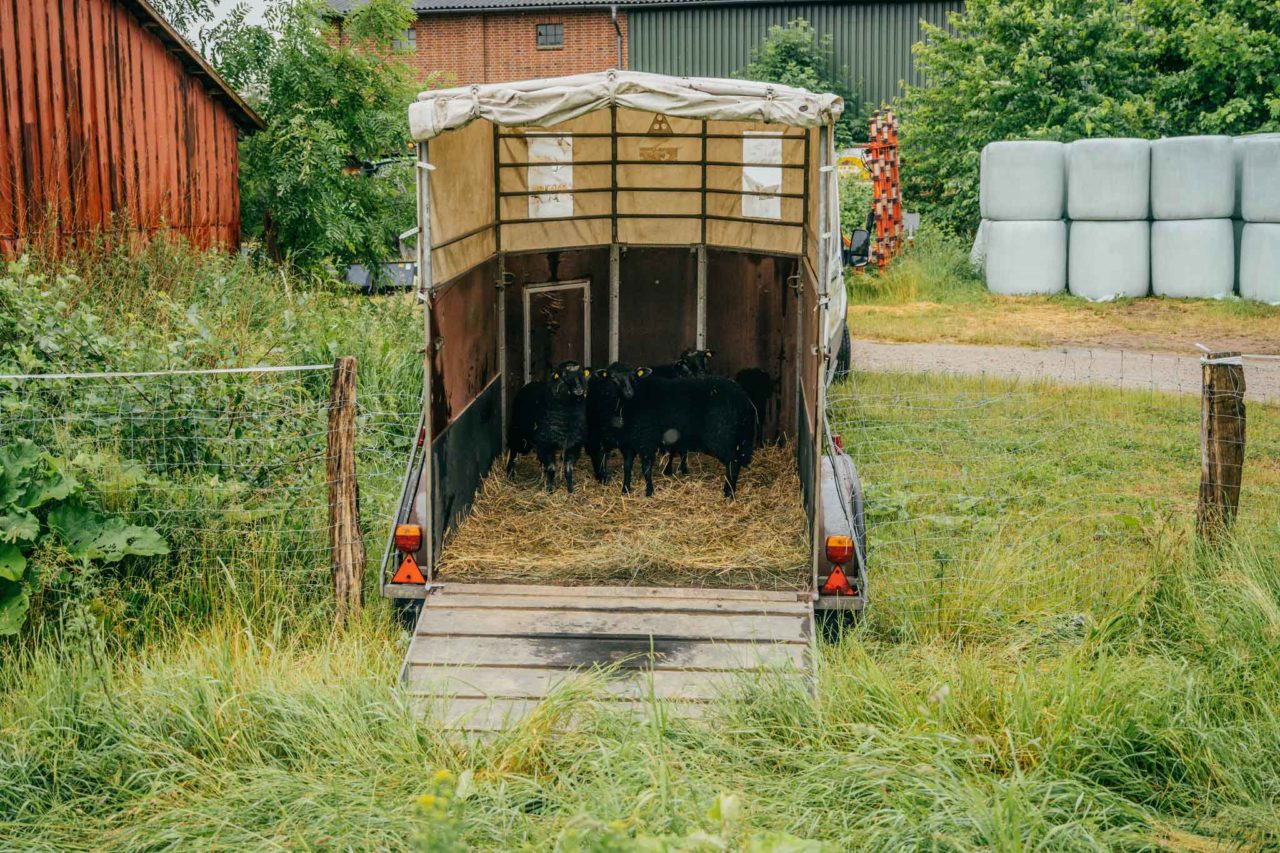
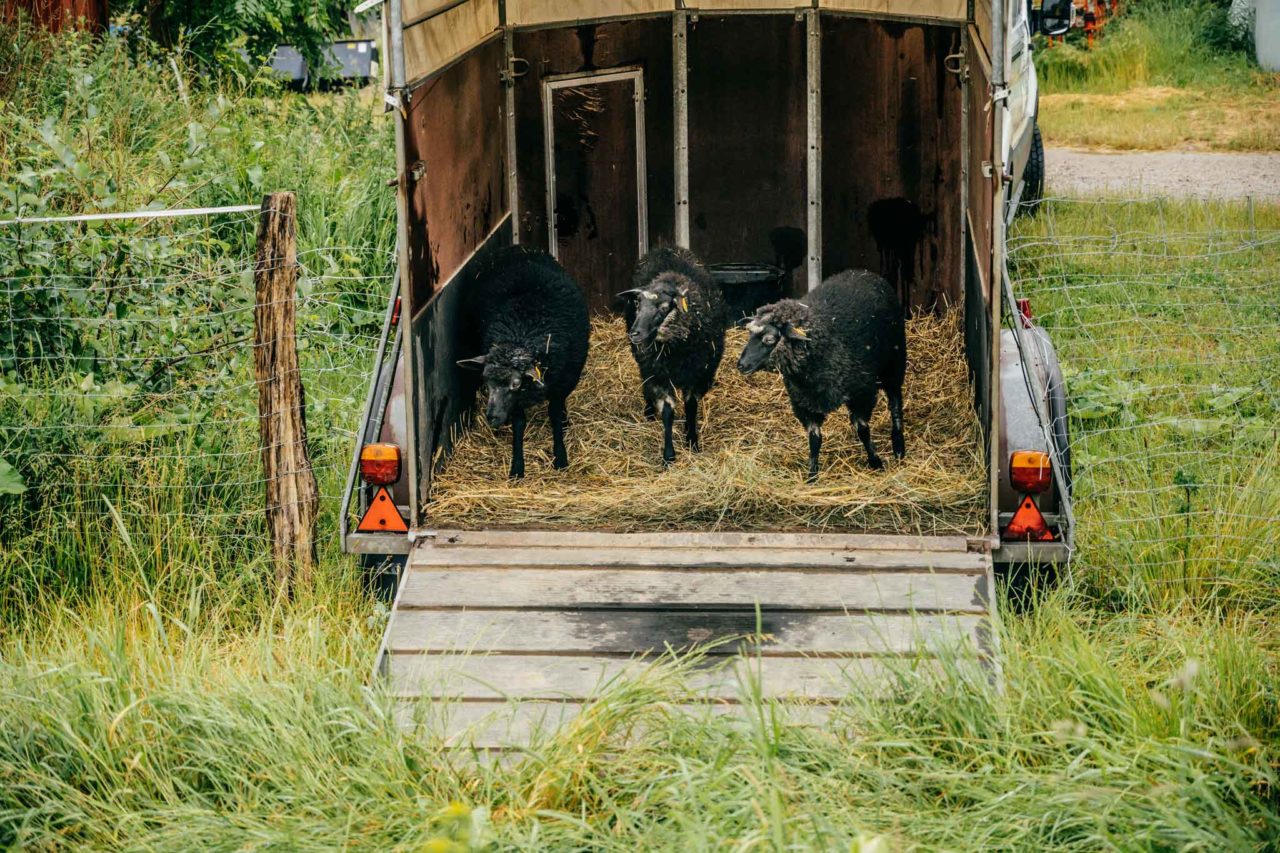
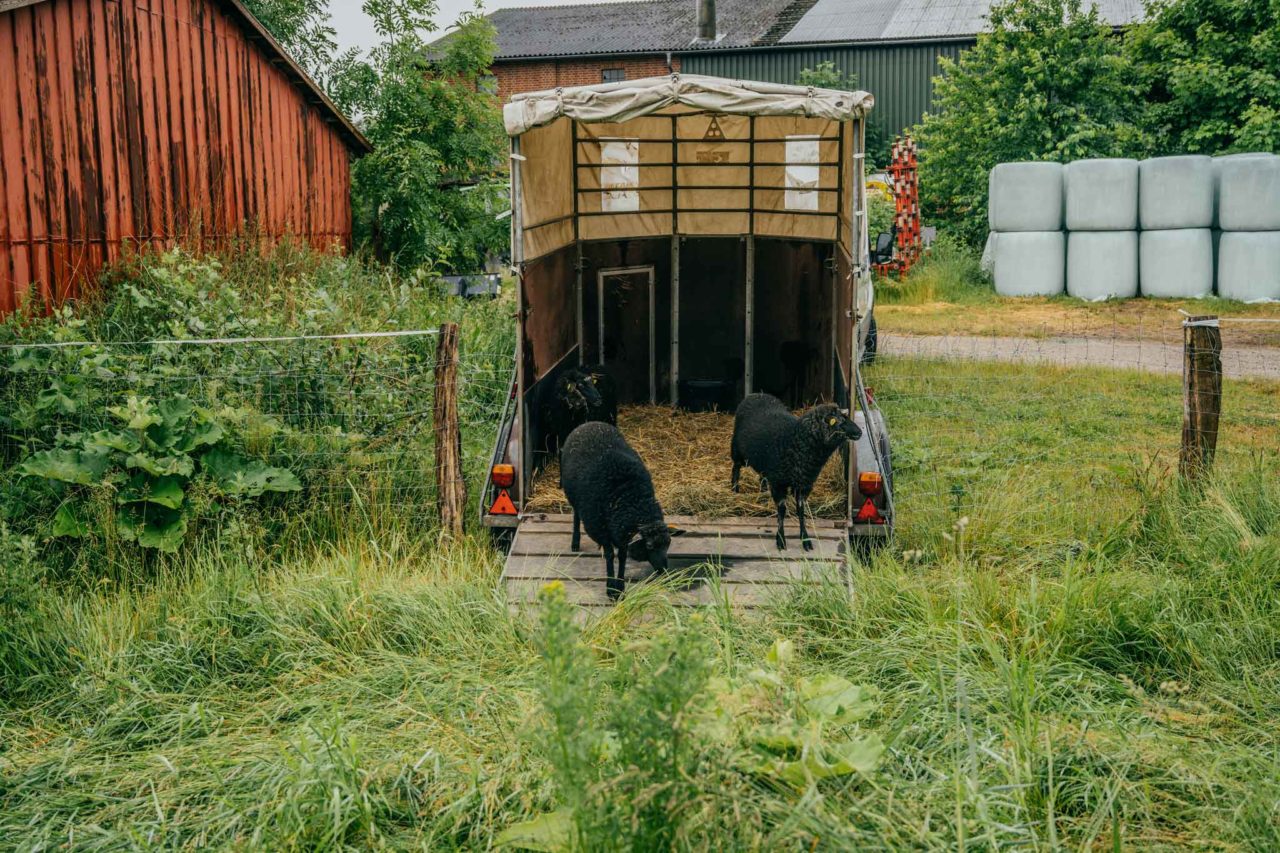
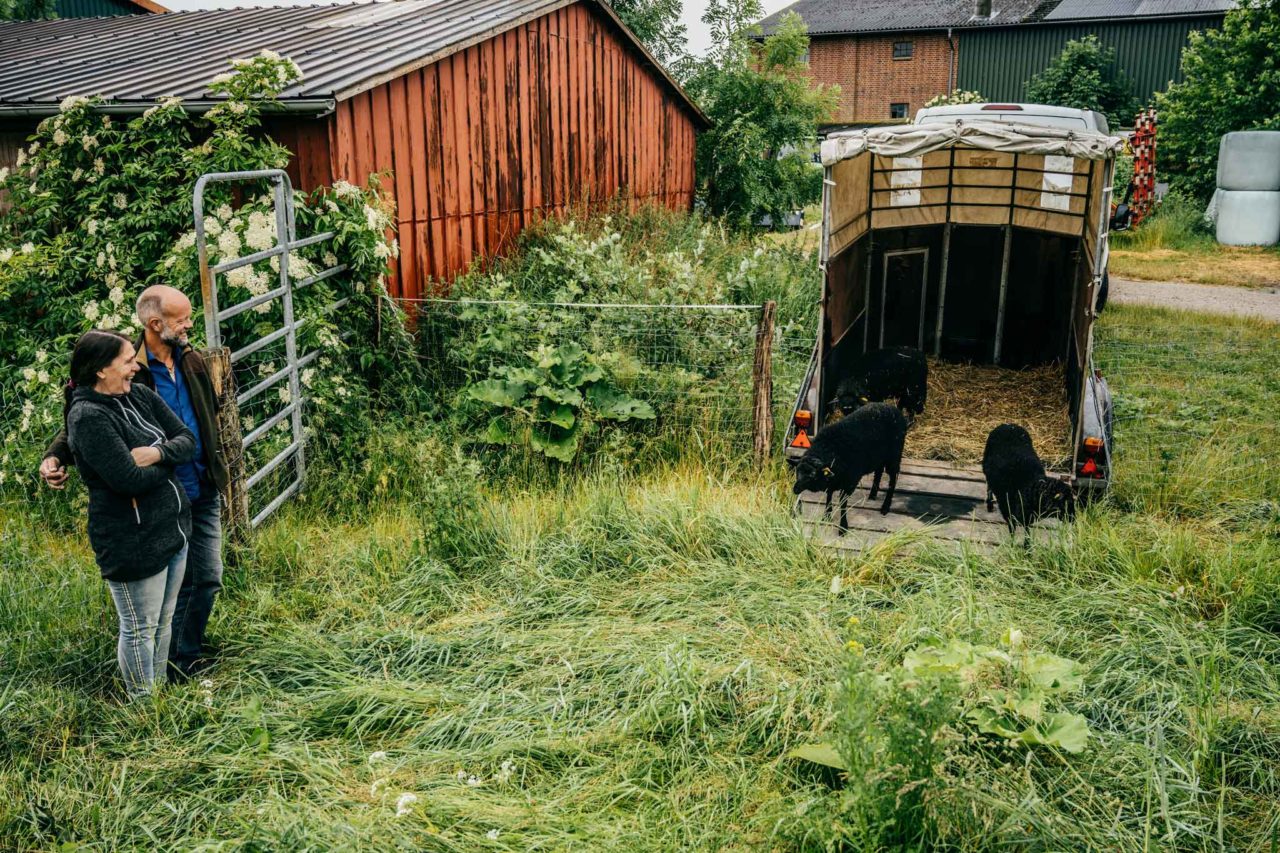
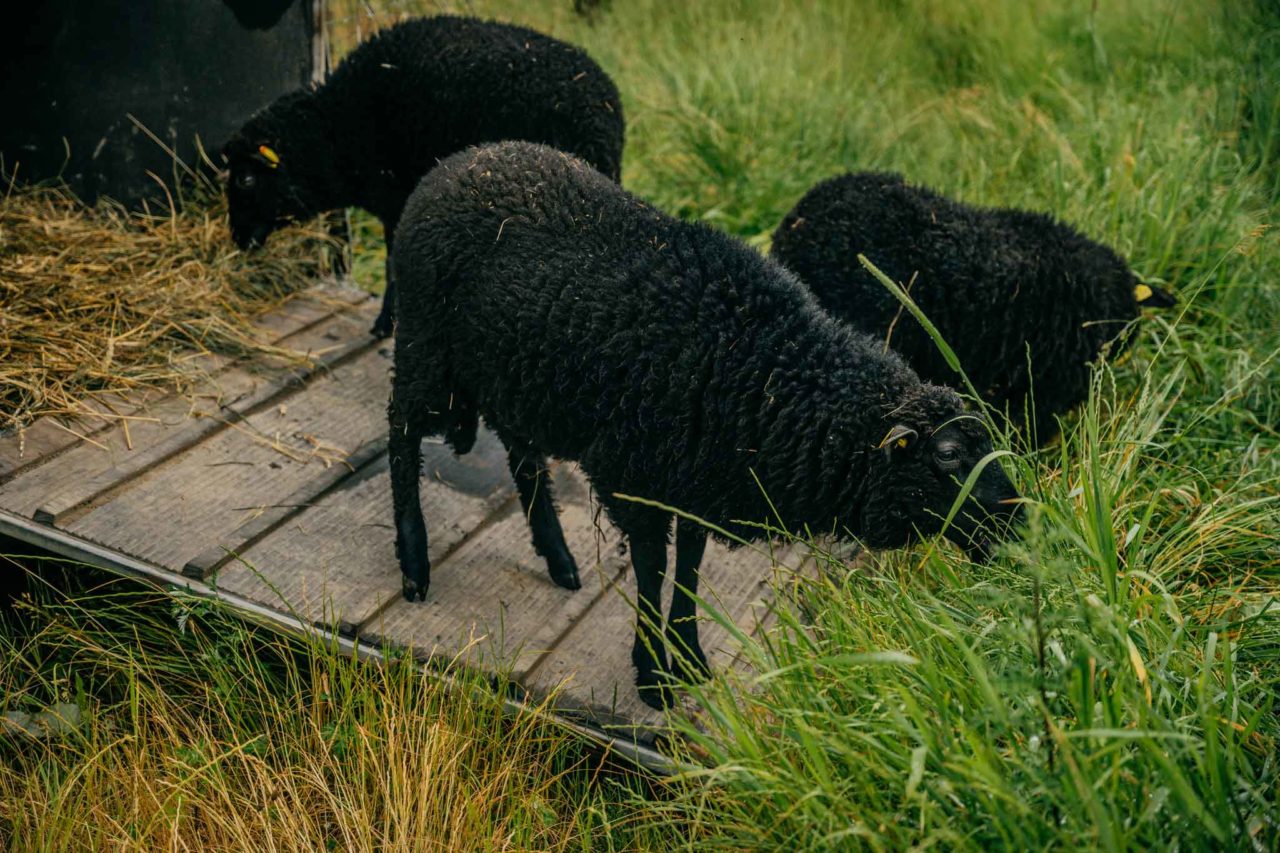
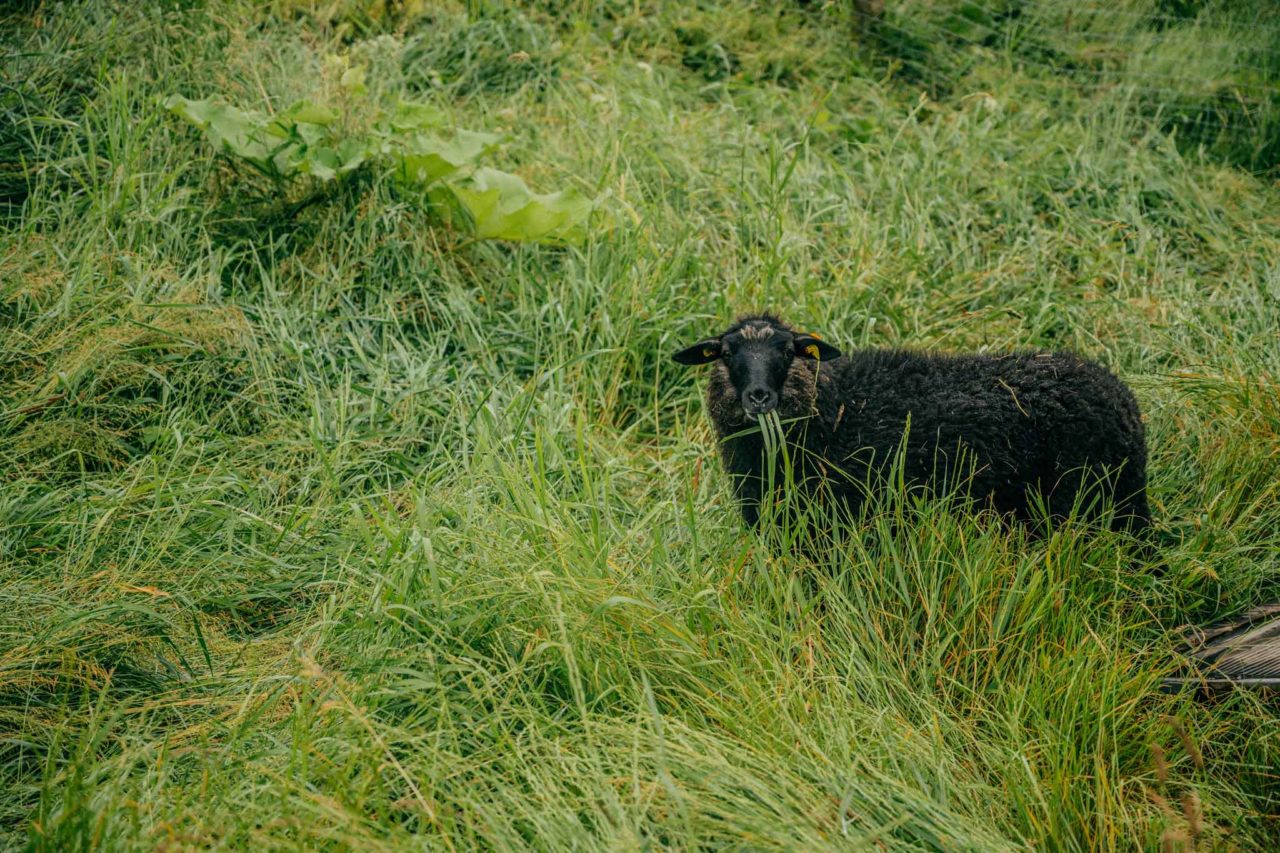
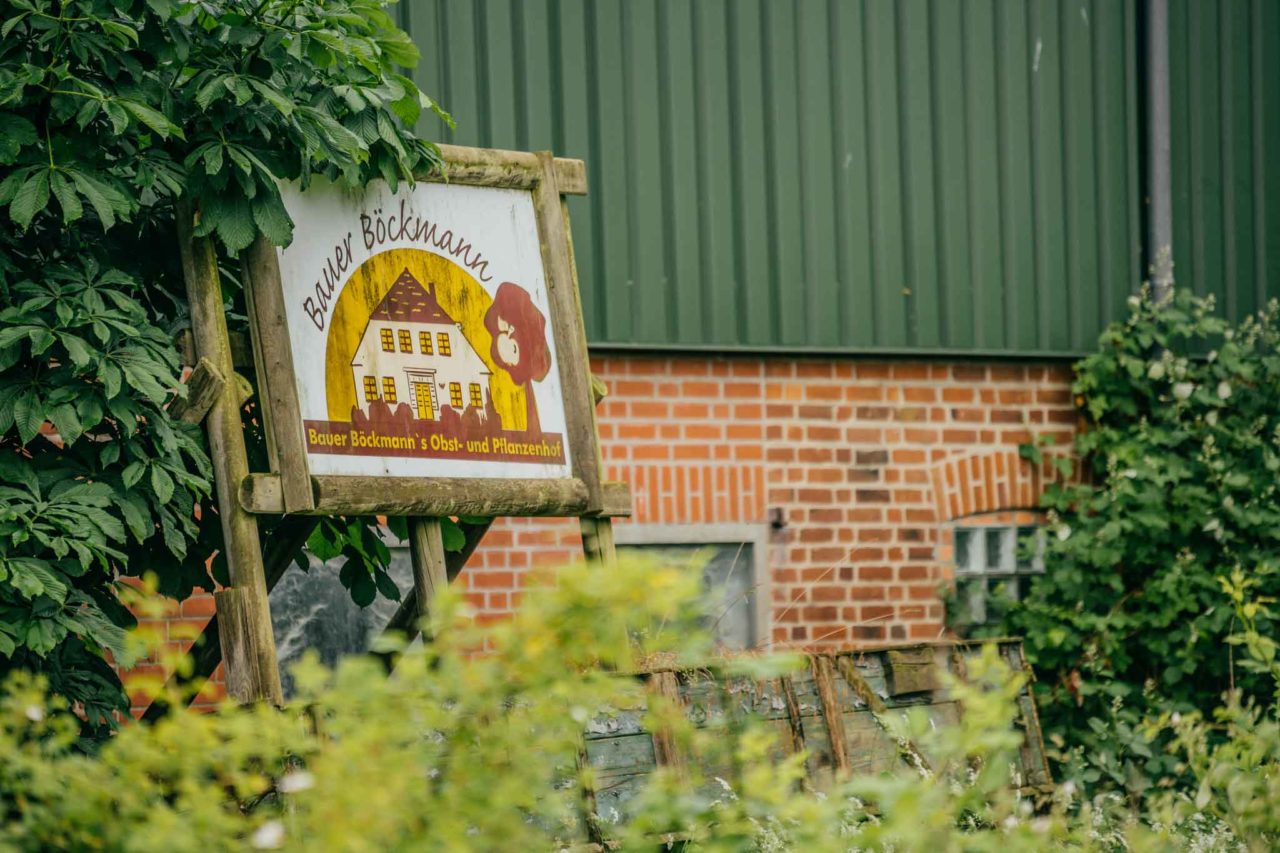
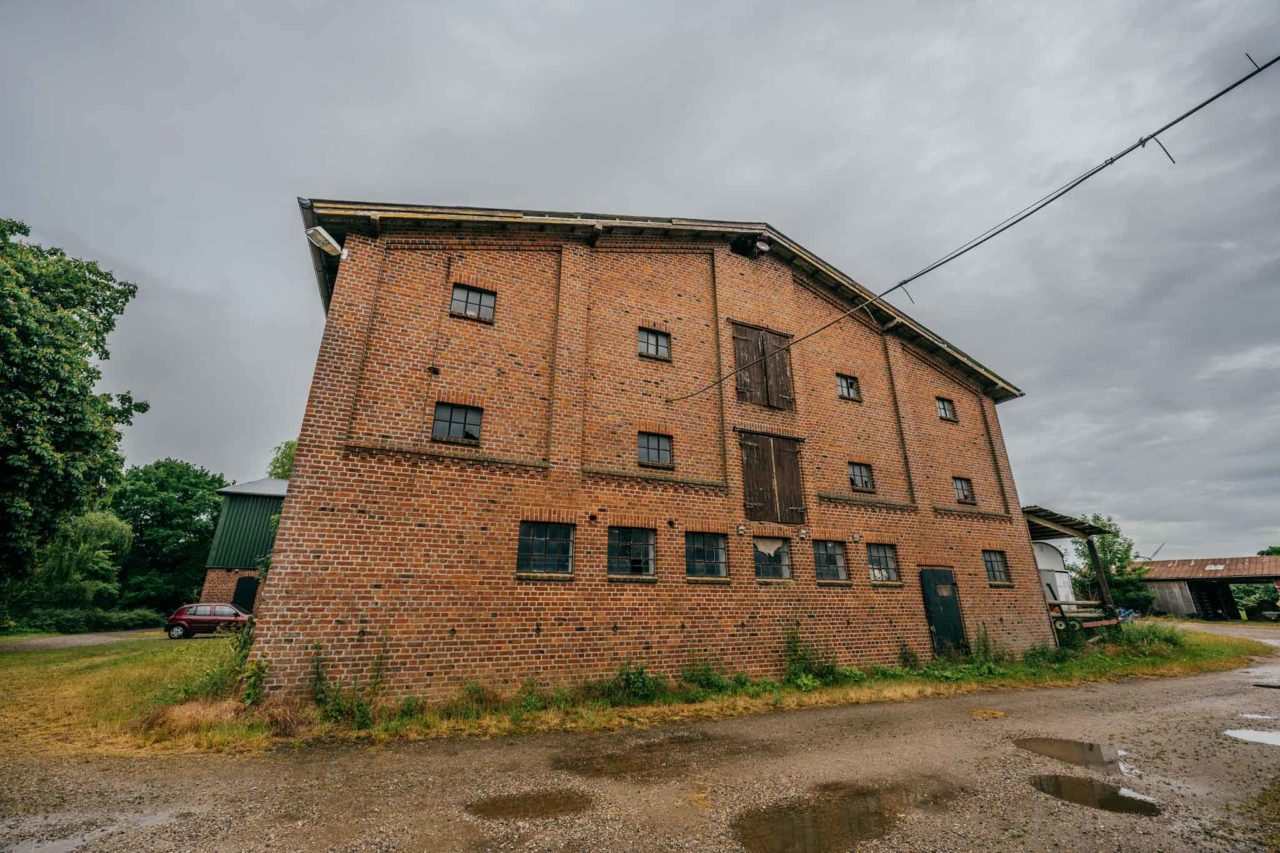
We are sure the lambs will feel at home with Anja and Rolf, the horses, the strawberries and all the organic vegetables. The delicious strawberries are available in season at various strawberry huts in and around Grömitz, as well as in our own farm store - which is so much more than this word implies - in Bäderstraße in Cismar. There is not only their own strawberries and jam on offer, but you will also find many decorative items and flower arrangements that are regional as well.

